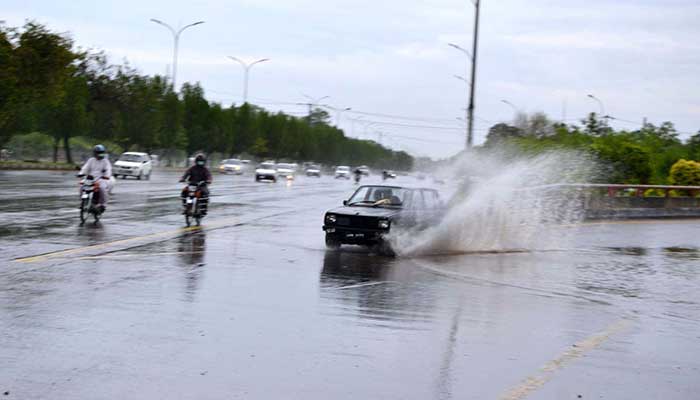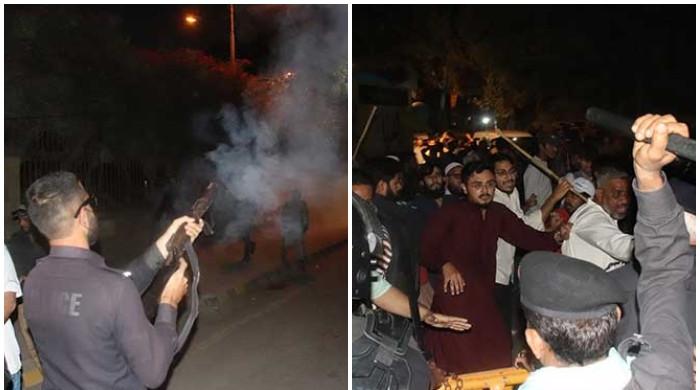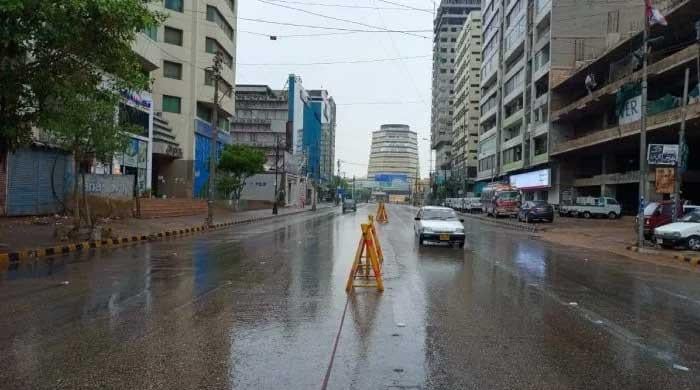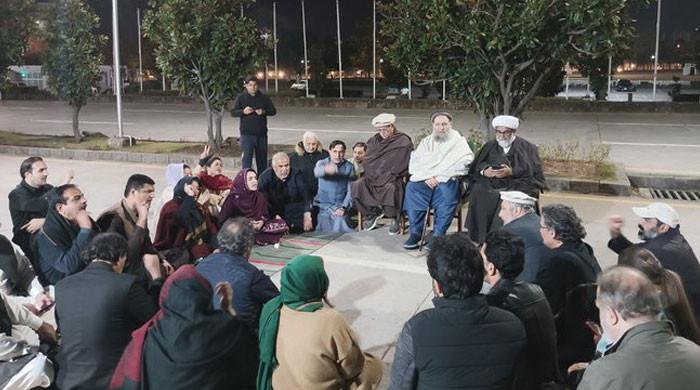Warning signs in twin cities cause panic among residents
Met Office has also predicted a thunderstorm with isolated heavy rainfall in twin cities
May 15, 2020

RAWALPINDI: Residents among the low-lying localities panicked as the local administration blew ‘warning sirens’ on Thursday after Nullah Leh water level rose to 13.5 feet, reported The News.
To add to their worries the Met Office has also predicted a thunderstorm with isolated heavy rainfall in the twin cities of Rawalpindi and Islamabad in the next 24-hours.
The District Administration, Civil Defence Department, WASA and the ‘Rescue 1122’ have also been on high alert to deal with any emergency.
The heavy rainfall also disrupted the routine life of residents settled in low-lying localities as the choked sewerage system led to city downtown areas being flooded with deep water. All big and small ‘nullahs’ passing through the twin cities, including Korang Nullah, overflowed during rain.
All roads even Murree Road, Airport Road, Mall Road, Jhelum Road and Katchery Road were flooded with rainwater. All underpasses were packed with rainwater while motorists faced hell like situation. Several motors and bikes stopped at roads in rainfall. The DC Rawalpindi Capt (r) Anwar-ul-Haq told The News that he has directed all people settled around Nullah Leh to immediately shift to some other safer areas during heavy rainfall to avoid any untoward incident.
“The water level is continuously decreasing here at Nullah Leh,” he told the publication.
According to Flood Forecasting & Warning System, water level here at Nullah Leh is continuously decreasing. The water level here at Katarian is 6.5 feet and 8 feet at Gawalmandi.
The local administration has issued flood warnings for residents living in the low-lying areas of the city especially the areas of Gawalmandi and Arya Muhallah. Massive traffic jams could be seen at Raja Bazaar, City Saddar Road, Benazir Bhutto Road, Mall Road, Rawal Road in Rawalpindi while Zero Point Road and Expressway Road in Islamabad during heavy rainfall.
Originally published in The News











